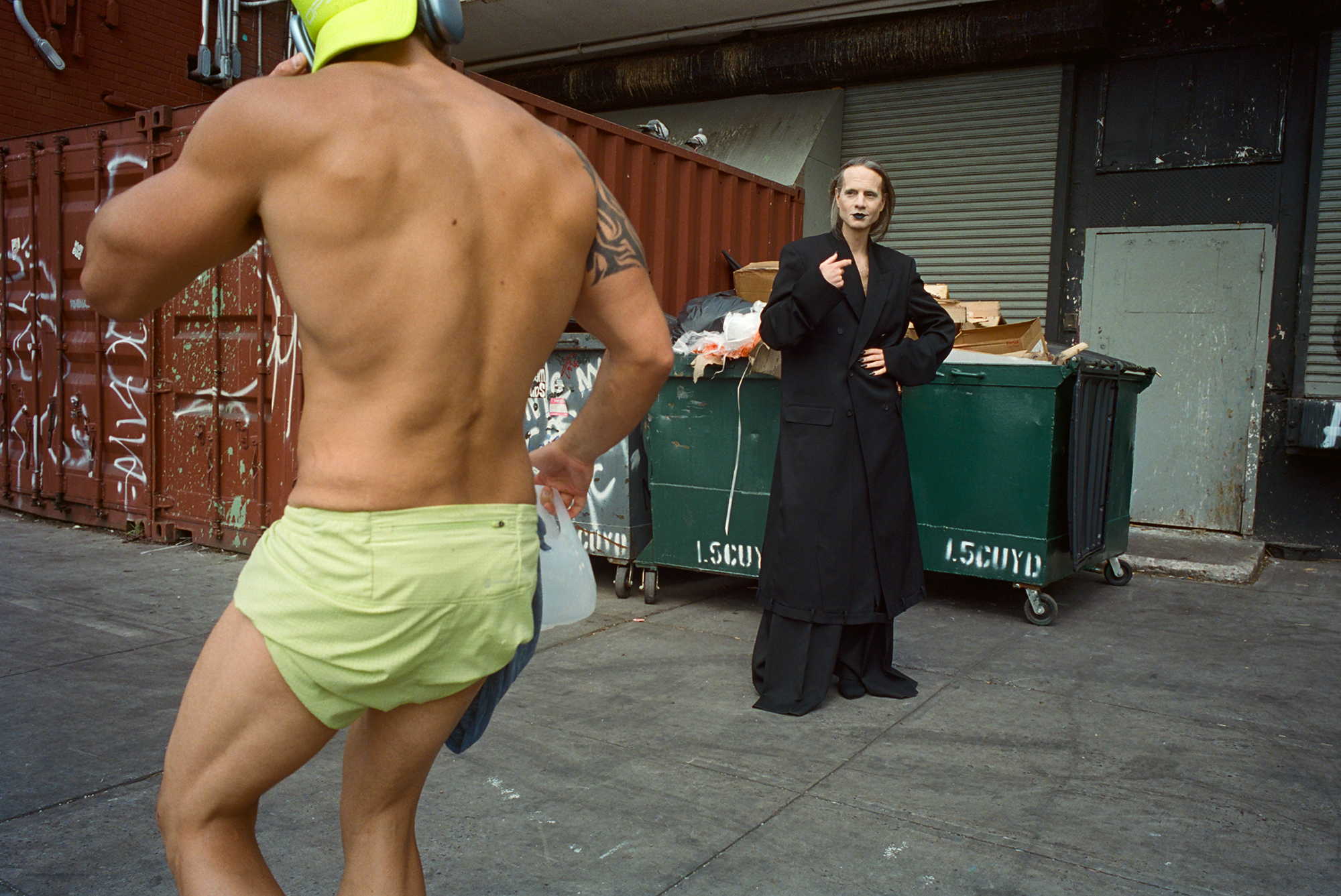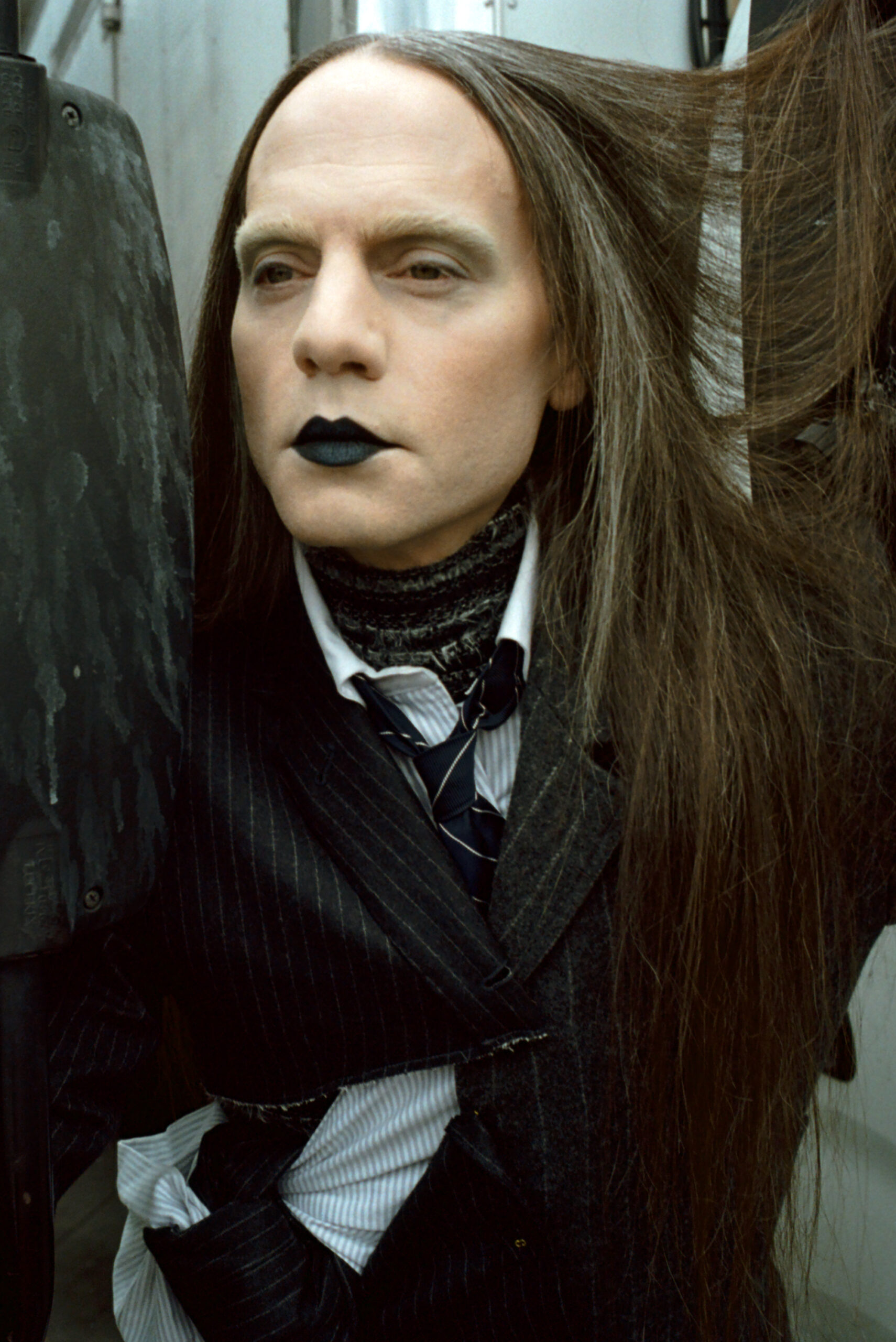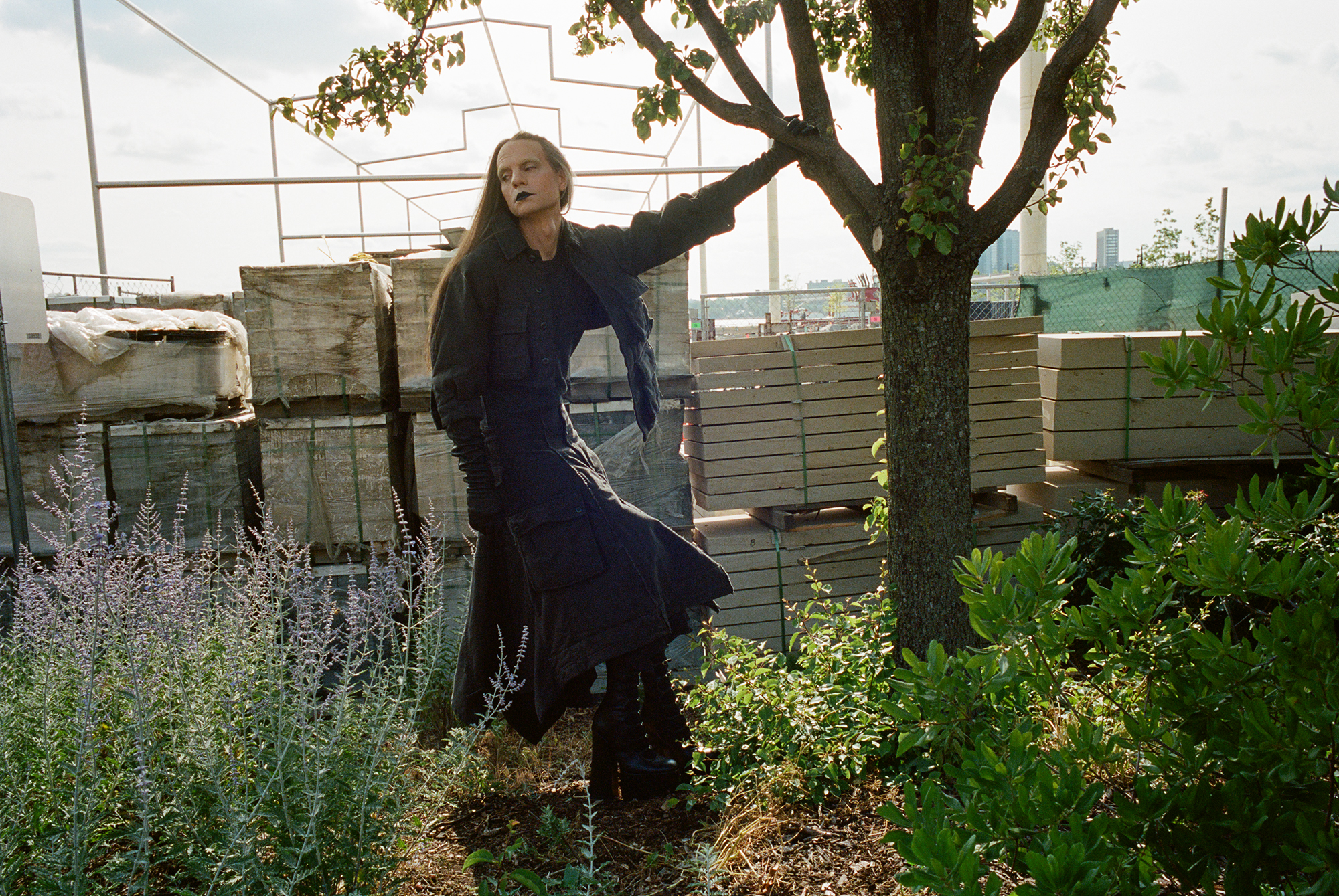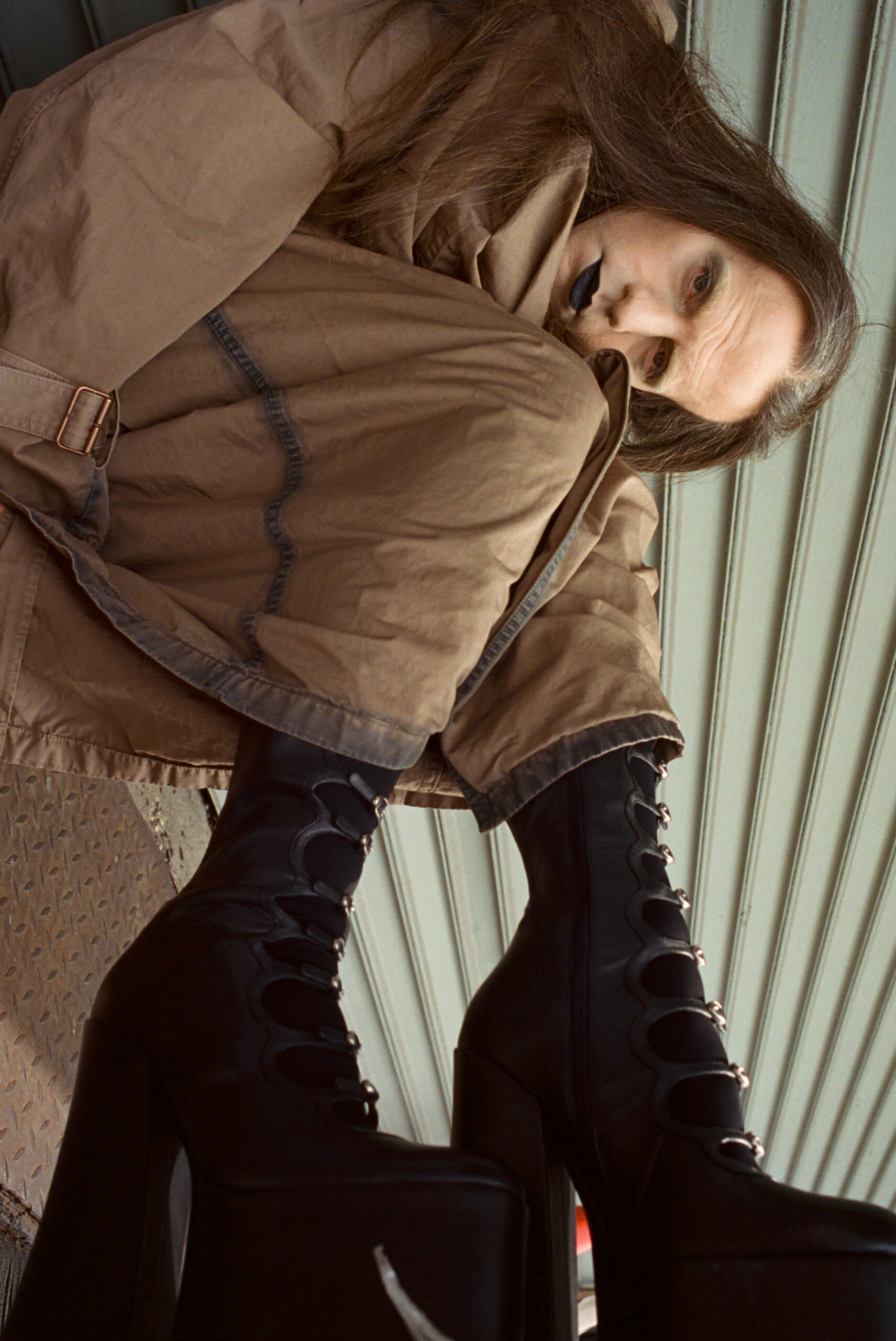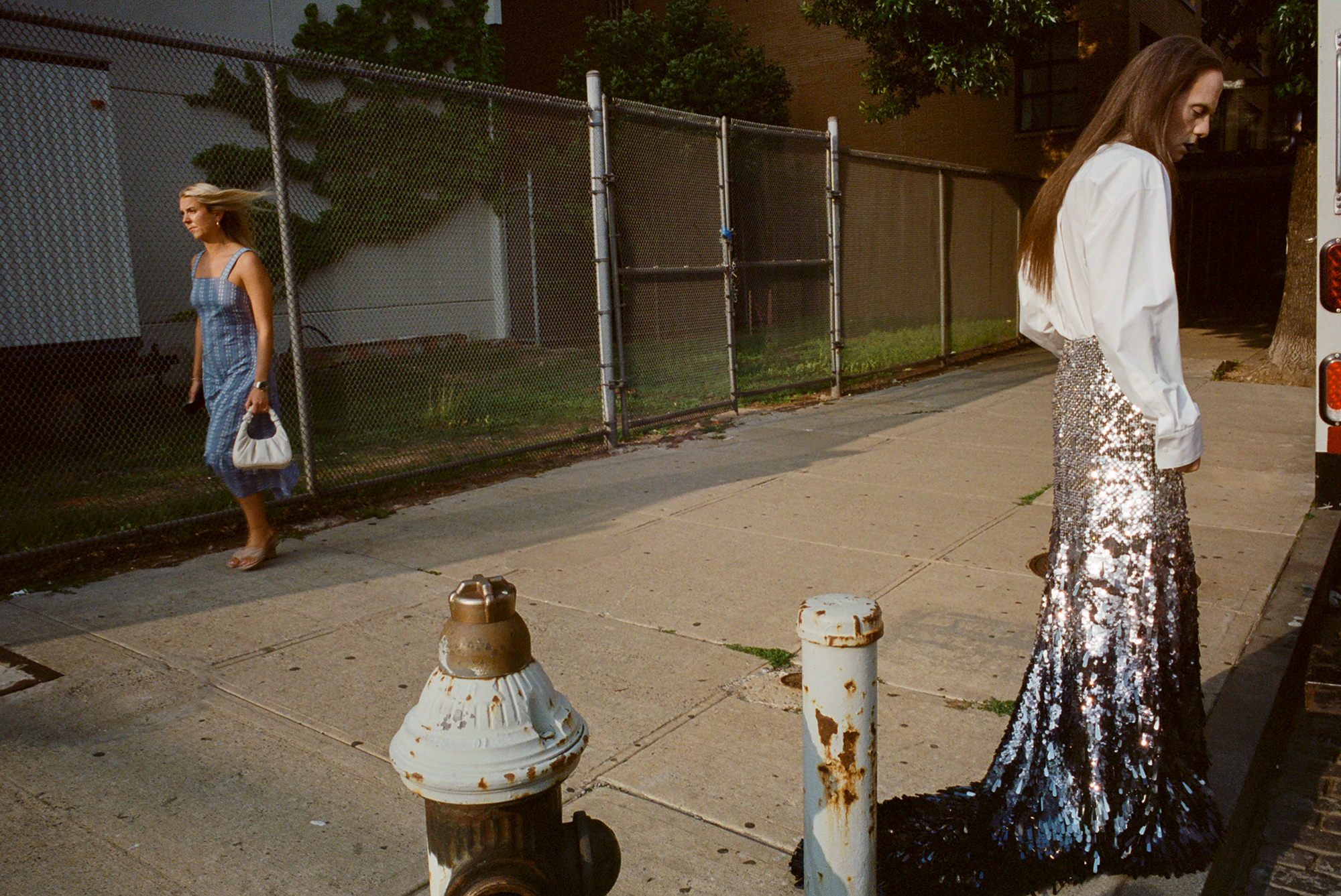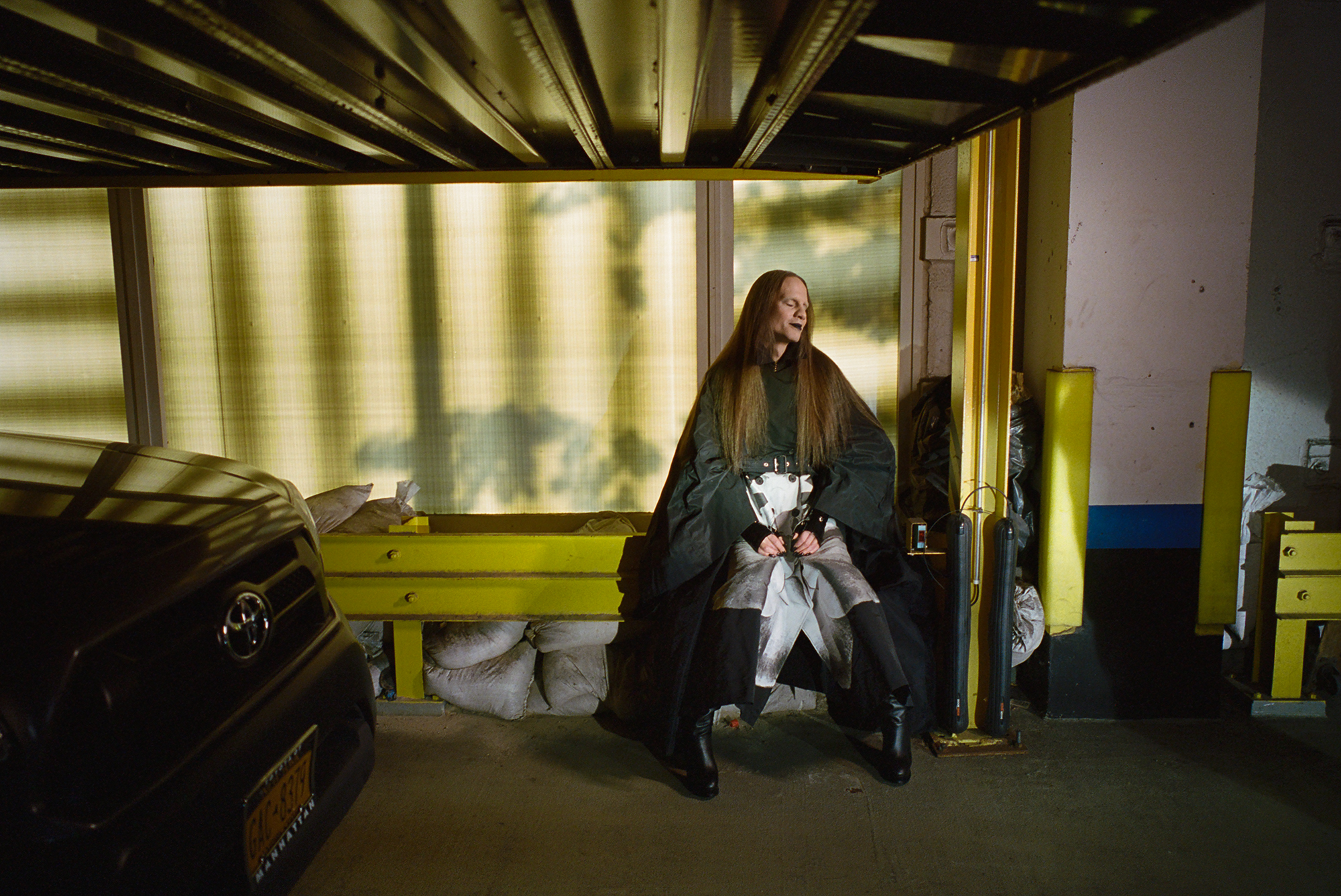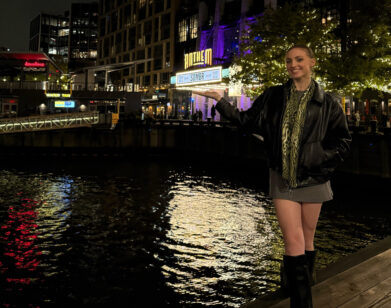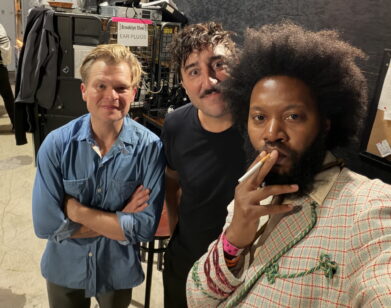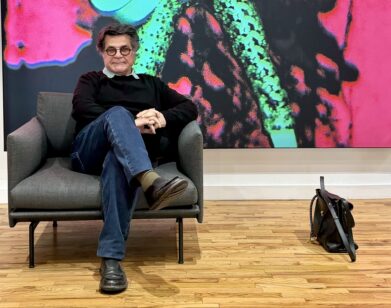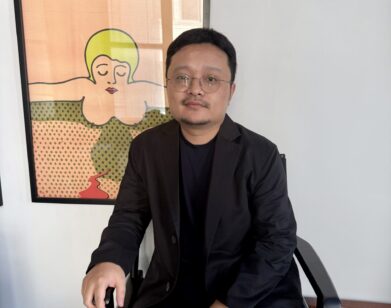DRAMA
Jordan Roth and Jeremy O. Harris on the Politics of Self-Expression
Jordan Roth, the seven-time Tony Award–winning theater producer, LGBT philanthropist, gender-bending fashion fixture, and father of two, is reclining in bed when the playwright Jeremy O. Harris calls to discuss the thinking behind his subversive, self-actualizing life. “What we write on our bodies is internalized,” Roth says. “So, being deliberate about that story is important.”
———
JEREMY O. HARRIS: Hi!
JORDAN ROTH: Hi, honey.
HARRIS: How are you dear? Are you at your office already?
ROTH: No.
HARRIS: Oh, it looks like an office. It looks gorgeous.
ROTH: That’s my headboard.
HARRIS: [Laughs] That makes me feel better. I’ve been up since 6:30 a.m., emailing and making calls. I haven’t gotten out of my robe yet.
ROTH: You needn’t get out of your robe. It’s a wonderful robe. May we all stay in our robes all day. I do feel like the difference between home and work-wear is completely obliterated.
HARRIS: Right? After COVID we decided that sweatpants were in and everything else was out.
ROTH: Let’s not get hysterical.
HARRIS: But that’s why you’re so unique. We’re in a moment when so many people would rather dress down than dress up and I feel like any opportunity to dress up, you’re taking it. Have you always been that way?
ROTH: I’ve always felt that fashion was vocabulary for me. I was always excited by the opportunity of dressing up and what it said to me, to my body, and what it might say to you.
HARRIS: That’s something I relate to a lot. I always say that the first story you write about yourself is with your clothes.
ROTH: That’s absolutely true, but what we write on our bodies is internalized. So, being deliberate about that story is important. My husband used to tell our older son when he was a child, “Be careful not to hurt your own feelings.” The notion of hurting your own feelings isn’t a thing that we think about as possible. It’s usually, if my feelings are hurt, it’s because somebody else has made me feel that way.
HARRIS: I hurt my own feelings all the time. When was the last time you hurt your own feelings?
ROTH: Oh, I don’t know. Ten seconds ago? [Laughs] I’m interested in that question because joy does not mean the absence of sadness. For me, it’s about experiencing everything deeply. In Steel Magnolias, Dolly Parton says, “Laughter through tears is my favorite emotion.” But to your specific question of hurting my own feelings, it’s just a thing that I try to be aware of, which means I’ll maybe do it ten times a day instead of 20. This is not about how perfect we can be, but rather how aware of our own powers we can be.
HARRIS: I love that. One of the reasons I was excited about you being in the mag this month is that it’s the start of theater season. I’ve been critiqued a lot by people—literally, the first thing that someone said to me at Yale when I got there was, “You’re so intelligent, but your relationship to being a peacock can distract from that.” People imagine that most theater producers are supposed to stay hidden, stay quiet, be in the background, but you’re very present in the theater world. What gives you that sense of boldness and what do you think about the idea that being a peacock is somehow distracting from the seriousness of your labor?
ROTH: There is so much embedded in that question that we are going to unpack.
HARRIS: Let’s do it.
ROTH: The assertion that dressing up is silly, frivolous, and negatively feminine is embedded in the deep misogyny, homophobia, and self-loathing that we all learn and suffer from. That took a while for me to understand and unpack because that’s where I started. That’s where we all start, I think.
HARRIS: You started in a place of being alienated from wanting to be the Jordan we see now.
ROTH: Correct, because of this erroneous belief that vanity, frivolity, and silliness are antithetical to scholarship and business. “Real things that real people do.”
HARRIS: [Laughs] Exactly.
ROTH: The process is not to say, “I can be both,” it’s to reject that there is a dichotomy here. Dressing with intention, rigor, joy, and scale is thinking, creating, and managing intention with rigor, joy and scale.
HARRIS: I love that.
ROTH: They feed each other.
HARRIS: It’s absolutely true. I like imagining the intention that it takes for me to figure out the outfit, whether it came months and months before or when I have to get ready quite quickly. My closet has the rigor already put into it for me to move right into the look.
ROTH: Exactly. Now, let’s be honest. It’s true that the same anxieties and fears that we may have when we are presenting a rigorous piece of work in our “professional lives” are also the same kinds of fears and anxieties we may have when putting ourselves out there—a phrase I don’t love—in our daily presentation of self.
HARRIS: Yep.
ROTH: And that’s okay, too. I will say though, those fears and anxieties loosen their grip the more I feel prepared and intentional about my dressing. So it’s actually the reverse of what you might think. “Well, you put a lot of work into it and so therefore you care so much.” In fact, it’s when I have not thought about it and I’m like, “Oh god, I need to put something on right now. What’s it going to be?” That’s where the stresses emerge. But also, to your point of preparing a closet as you prepare a library, it allows for those faster moments to feel easy. Which is to say, to have as good a chance as possible at allowing your outsides on that day to reflect your insides, which is, I think, the entire point of dressing.
HARRIS: I have a multimillion dollar pitch for you. You need to write a book called The Art of Dressing on producing successfully. It’s just like The Art of War, but yours will be all about the guide to getting dressed. I’m telling you, everyone will buy it.
ROTH: I’m with you, except I’m going to substitute metaphors for living with metaphors for producing, because nobody really gives a shit about producing. We all give a shit about living.
HARRIS: [Laughs] I’m trying to learn right now so I care a lot about producing. I’ve been waking up at 6 a.m. trying to get on your guys’ schedule because I’m an artist who’s trying to learn how to do what you do.
ROTH: Honey, my love, you don’t have to get up at 6 a.m. to get on anybody’s schedule, least of all mine.
HARRIS: [Laughs] What time do you normally wake up?
ROTH: Around 6 a.m. [Laughs] That is my morning period.
HARRIS: Did that start when you became a dad?
ROTH: No, I was always a morning person. In fact, I have, over the last several years, allowed my mornings to take me into the day with a bit more gentleness. That’s been possible as Levi [Roth’s son] has gotten a bit older and has wanted his early mornings to also be more for his own time. I begin with transcendental meditation, which has changed my life. And then, I hope to move from that to morning pages— writing what is in me at the moment—and somewhere in there is some lemon juice and water. Then we begin breakfast and take Levi to school.
HARRIS: I love that. Did becoming the Jordan Roth we all know now happen post-marriage or post-parenthood? What was the moment for you that was like, “This is it”?
ROTH: There were definitely moments, but the work of being is a daily process for all of us. To your question, my marriage and my husband have been fully instrumental in allowing me to grow into myself, because my husband often sees me before I do, which is an extraordinary act of generosity and love. So, it wasn’t, “This is who I am. Will you catch up to me?” It was almost like he was cheering for me to get there. I don’t mean “get there” as though any of this is a destination, I think that’s self-defeating. The destination is the process of being.
HARRIS: Yeah.
ROTH: Because our conception of it, as a place to arrive at, rather than a curiosity of self and a way of moving through the world in self-development, self-process, and self-actualizing, is very different from being self-actualized.
HARRIS: Yes. It’s partially because so many people want to self-actualize. “What are you? Who are you?” It happens to me all the time. I’ll see people tripping around pronouns and words to describe me when they’re talking in front of me and I’m like, “What is your conception of me when I’m not there?” [Laughs]
ROTH: Let’s go there. “What are you?” is not a question of comfort for me. It’s probably not a question of comfort for many people who grew up in a world where, if you have to be asked, you’re already doing it wrong.
HARRIS: [Laughs] Oh god. I’m just thinking of all the wrongness of my childhood and my youth.
ROTH: Correct. I understand that we’re now in a world where it feels like an act of generosity to ask the question, and the question is being asked in very well-meaning ways, but it is still a question that lands heavy on my heart.
HARRIS: Yeah. I did have some rapid-fire questions I wanted to ask you.
ROTH: Hit it.
HARRIS: Best fashion show this season?
ROTH: Oh, I’m not a lover of “best.”
HARRIS: [Laughs] You’ve won Best Musical, Best Revival, and Best Play. You have a lot of best around you.
ROTH: But there’s extraordinariness in everything, even the things that we think we don’t like, so I try not to ask the question.
HARRIS: Okay. Then what show have you been thinking about a lot recently?
ROTH: Great question. In fashion?
HARRIS: Mm-hmm.
ROTH: I continue to think about Thom Browne. I’m very interested in the ways in which designers and artists are thinking about the context of their work. If you’re looking at a fashion show as pieces of fabric that are on a body, you are missing a lot of it. I just did KidSuper’s fashion theater experience which was a fascinating, thrilling, and brilliant recalibration of what the work is.
HARRIS: Yes.
ROTH: That was about so much more than clothes on bodies. I think Marc Jacobs is asking that question in a very different way by showing us a 3-minute fashion show that dispensed with what we might call the show and just gave us the finale, right?
HARRIS: It was like listening to a podcast at triple speed.
ROTH: Exactly.
HARRIS: Last question. You seem to be the producer that can get anything done, but there must be a white whale. Is there some great play or musical you want to get in on, or an actor you haven’t worked with yet?
ROTH: That’s such a great question. I don’t think I have just one. Someone who comes to mind is Tilda Swinton. And the fact that I’ll never work with Alexander McQueen gives me a deep sadness.
HARRIS: Honestly, put Tilda and McQueen in a blender and on a stage for me and that’s it. I’m in a dream world. When I was in college, right after the—I forget the name of the collection but it was the one with the shoes that Lady Gaga wore.
ROTH: Armadillo.
HARRIS: The armadillo shoes. I was like, “Why has no one done an opera with him?”
ROTH: I would argue that he was doing his own operas.
HARRIS: He was insane. Those shows were beyond the clothes but not to the exclusion of them in the most amazing way.
ROTH: Right. McQueen and [John] Galliano, I think we’ll be studying them for the rest of our lives; shows that were, from the very moment of inception, steeped in rigor, storytelling, character, and fantasy. I don’t even have a verb for what they do.
HARRIS: I love that. Babe, it’s been so lovely talking to you this early in the morning. I haven’t even had coffee yet.
ROTH: Honey, it’s not early.
HARRIS: [Laughs] It’s early for me. I’m getting used to this.
ROTH: You’re doing great. We’re all cheering for you.
———
Hair: Brent Lawler using Act+Acre at Lowe & Co.
Makeup: Liselotte Van Saarloos using Mac Cosmetics at The Wall Group.
Nails: Sonya Meesh at Forward Artists.
Fashion Assistants: Alban Roger and Thomas Kivell.

